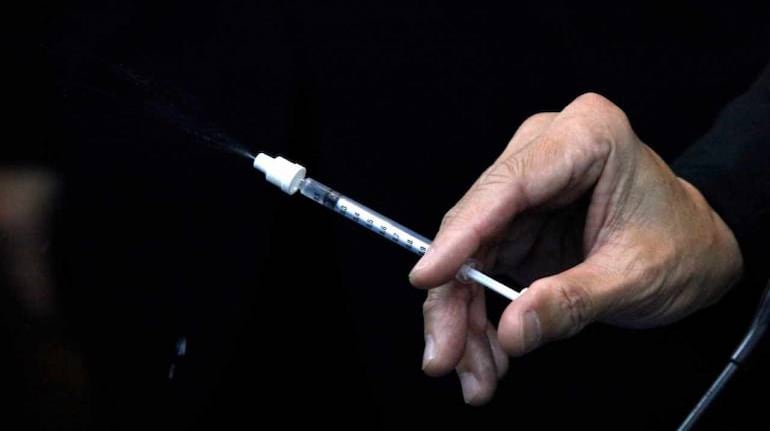



Nearly a month after the Drug Controller General of India approved phase 3 clinical trials of a nasal COVID-19 vaccine developed by Bharat Biotech, the study is set to kick off at nine sites across India including the All India Institute of Medical Sciences in the capital and in Patna. The trials will evaluate the safety and efficacy of the vaccine in those who have already been fully vaccinated with Covaxin or Covishield, and will also test it as a primary dose against infection. Significantly, as this vaccine is disease-preventing, as opposed to other COVID-19 vaccines that are mainly disease-modifying, it is being touted as a possible game changer in the fight against the pandemic.
The development of the vaccineBharat Biotech and Washington University School of Medicine in St Louis had announced a licensing agreement as early as September 2020 for the nasal vaccine candidate, under which the company bagged the distribution rights in all markets except the US, Japan and Europe.
As per the Central Drugs Standard Control Organisation (CDSCO) approval, phase 1 trials involving testing the vaccine candidate on 75 volunteers had helped generate safety and immunogenicity data. Subsequently, a phase 2 trial of the vaccine was also carried out and showed promising results.
In the phase 3 trials starting now, the vaccine will be studied as a booster dose in those who have received two doses of Covaxin or Covishield vaccines and also in those who are yet to be vaccinated. The gap between booster dose and full vaccination will be six months and in all, nearly 5,000 participants are expected to volunteer for the trials.
“It will be a multicentre, randomised, open-label study and will analyse the safety and immunogenicity of the intranasal vaccine as a booster dose in subjects inoculated with COVID-19 shots approved for use under New Drugs and Clinical Trials Rules, 2019,” said a source in the CDSCO.
How does it work?The vaccine candidate BBV154, a novel adenovirus vectored intranasal vaccine, stimulates a broad immune response, neutralising immunoglobulin G (IgG), mucosal immunoglobulin A (IgA) and T cell responses, according to Bharat Biotech, and elicits immune responses at the site of infection, in the nasal mucosa, which is essential for blocking both infection and transmission of COVID-19. IgG and IgA are types of antibodies and T cells are part of the immune system.
“The nasal route has excellent potential for vaccination due to the organised immune systems of the nasal mucosa,” the company says on its website.
Virologists also say that intranasal immunisation can create an immune response in the nose, which is the point of entry for the virus—thereby protecting against disease, infection and transmission.
A scientific paper published in Lancet last month said that the existing “intramuscular vaccines are poor in controlling viral replication and nasal shedding in the upper respiratory tract, leading to asymptomatic or milder symptomatic infection that can still transmit virus to others”.
In contrast, intranasal vaccines have the potential to induce sterilising immunity against mucosal pathogens, it added.
According to the paper, conventional injection vaccines are poor inducers of mucosal immunity, whereas intranasal immunisation can induce strong mucosal immunity to avoid the entry and development of mucosal pathogens. When SARS-CoV-2, the virus that causes COVID-19, enters the nasal cavity, the respiratory epithelial layer becomes the first barrier against viral infection.
Then, the innate immunity components in the upper airway mucosa become the first line of defence, which consists of diverse immune cells, including phagocytic neutrophils, macrophages, dendritic cells, natural killer cells and mast cells.
These immune cells can form an integrated system to directly fight pathogens or induce adaptive mucosal immunity via multiple mechanisms. If the viruses reach deeper airways or the lungs, pathogens-associated molecular patterns (PAMPs) expressed on viruses will be recognised by pattern recognition receptors (PRRs) expressed in respiratory epithelial cells and alveolar macrophages, the paper explains.
Worldwide, nearly 12 COVID-19 vaccine candidates are in various stages of development.
How much hope, how much hype?Last year, just a few months after India launched the COVID-19 vaccination programme, V K Paul, member (health) and chairman of the national COVID-19 task force, had said that a nasal vaccine candidate had been identified for phase 1 and 2 trials, adding that if successful, it could be a “game changer”.
Many experts feel that nasal spray vaccines, apart from being easy to administer, are far likelier to prevent the virus from gaining a foothold in the body at an earlier stage.
“There is so much stress on these vaccines because evidence so far suggests that they can generate what we call a mucosal immune response,” said a member of the National COVID-19 task force. “In comparison to existing injectable vaccines, nasal sprays could also be far more effective in reducing person-to-person transmission of the disease.”
Dr Samiran Panda, chief scientist at the Indian Council of Medical Research (ICMR), stressed that these vaccines may be logistically easy to be included in the COVID-19 vaccination drive in a country like India and can be produced at large scale using technologies already in place at the country’s manufacturing facilities.
Another ICMR scientist pointed out that even though during the Omicron wave hospitalisations and deaths were far lower compared to the previous waves, mainly due to extensive vaccination and previous infection exposure, a large number of cases were still registered.
A vaccine that aims to control transmission itself, he said, has the potential to even arrest surges like the recent one.
Discover the latest Business News, Sensex, and Nifty updates. Obtain Personal Finance insights, tax queries, and expert opinions on Moneycontrol or download the Moneycontrol App to stay updated!
Find the best of Al News in one place, specially curated for you every weekend.
Stay on top of the latest tech trends and biggest startup news.